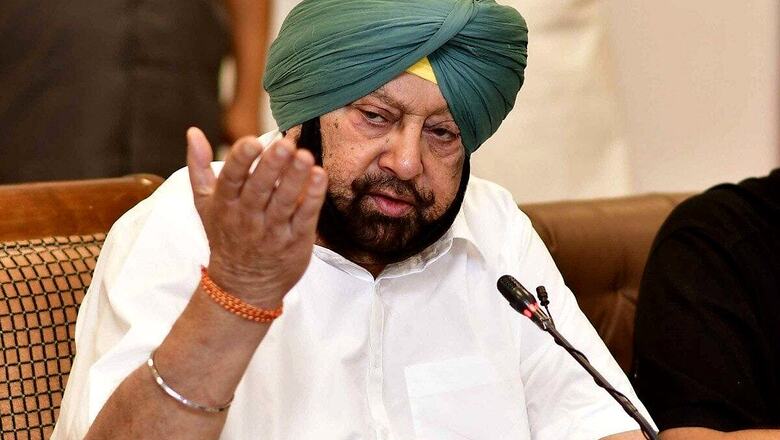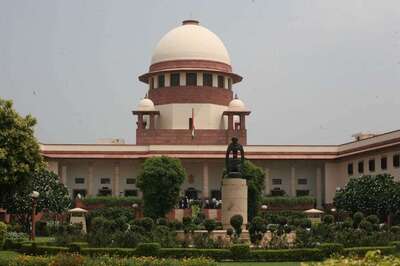
views
A committee set up by Punjab Chief Minister Amarinder Singh had in July last year recommended opening up agricultural marketing beyond the APMCs, precisely the reforms that the NDA government at the Centre had announced and which have been opposed by the Congress party, which runs the government in Punjab.
The group of experts, led by economist Montek Singh Ahluwalia, had also recommended putting an end to fertilizer subsidy and making the switch to Direct Benefit Transfer, doing away with Public Distribution System entitlements, shed light on the state’s unsustainable policy of free power for agriculture, and pushed for diversification from paddy to less water-guzzling crops.
The Punjab CM had constituted the committee under Montek Singh Ahluwalia, who was the Deputy Chairman of Planning Commission during UPA regime when Manmohan Singh was the Prime Minister. The mandate of the committee was to suggest measures to take Punjab’s economy forward post Covid.
A large part of the report focuses on the need for agriculture reforms. “The strategy for agriculture needs to be radically altered to shift away from the wheat/rice strategy that Punjab has followed traditionally, and diversify rapidly into high value crops and modern agro processing. Farmers need to be given access to new knowledge and new markets and also adequately incentivised to take on new risks,” the report said.
The expert panel had pinned hopes on the private sector to lift agriculture sector in the state out of its current mess, and said the government should aim at reforming agriculture marketing by inviting private sector to build modern supply chains using state of the art technology.
“Legal changes for directly buying from farmers along with investments in value chain infrastructure is the best way to reduce market risk and increase the farmers share in the consumer’s rupee,” it said.
The panel added that the best way forward for this was opening up agricultural marketing beyond the APMCs, since Punjab along with Haryana remain the only two states where procurement remains wholly routed through these mandis.
Moving marketing beyond APMCs is exactly the reform that the Centre has introduced which is now being opposed by the Congress after the farmers protest grew in scale.
Delving deeper into the issue, the group of experts recommended steps that would promote diversification, ensure sustainability with respect to ground water use, and also encourage modern marketing with linkages to agro processing in the private sector.
Among the steps recommended was a liberalisation of land laws that would open up a leasing market for agricultural land, and also allow its use for non-farming purposes.
The committee also pointed out that a fundamental problem facing Punjab’s agriculture is the policy of free power, which has led to an unsustainable burden on the budget.
Calling for electricity pricing for agriculture to be rationalised, the panel also mentioned there is a case for subsidy for “deserving farmers” through direct cash transfers. The report said that most of the subsidy accrues to large farmers, and fails in its purpose of aiding small and marginal farmers.
According to Montek, reforming electricity tariffs for agriculture was politically difficult, but the state should take a decision in this regard in future.
The free power largesse incurs an annual burden of Rs 6,500 crore on the cash-strapped government. It has remained a sensitive political issue in Punjab, with no regime really being able to do away with the populist measure ever since it was announced in 1996.
The recommendations had received flak after some portions were reported in the media, with several farm organisations terming them as “anti-farmer” and “anti-farming”. Captain Amarinder Singh had in August rejected some suggestions, saying there was no question of withdrawing free power to farmers in the state.
Read all the Latest News, Breaking News and Coronavirus News here



















Comments
0 comment